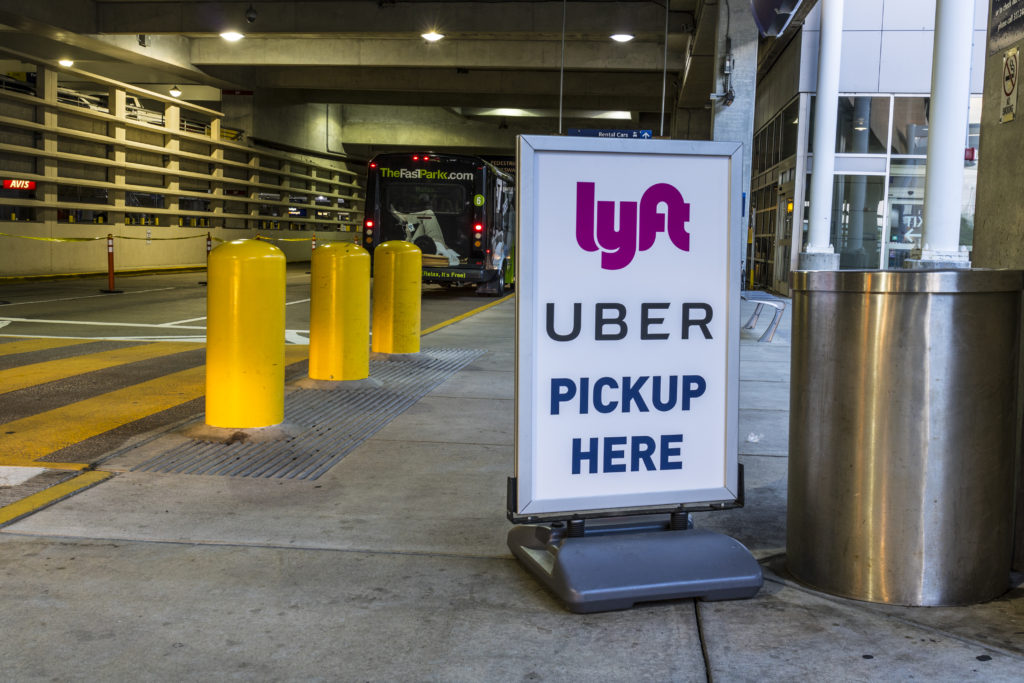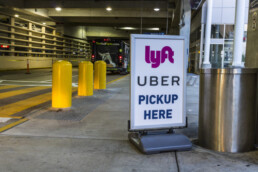Second Division Deems Arbitration Agreements Unconscionable and Executed by Fraud

In a decision recently certified for publication on October 22, 2021, the California Court of Appeals, Second Division, reviewed two versions of arbitration agreements executed between a group of employers and their employees. The decision stems from a class action lawsuit, Yeni Najarro et. al. v. Horizon Personnel Services Inc. et. al., wherein the employees filed eighteen employment related claims against their employers. The employers attempted to hide behind the different versions of arbitration agreements and compel the employees to dispute their claims before an arbitrator which would have prevented the employees from filing a lawsuit in court.
However, the Appellate Court determined that the arbitration agreements were unenforceable as the employee's consent to arbitration was secured by unconscionable terms and fraud in the execution of the agreements. This post will briefly highlight the big picture points of the Appellate Court's decision, and demonstrate how employees can overcome unfair arbitration agreements provided by their employers.
Arbitration Agreement Impact on Employees
We have written before the employers prefer arbitration for various reasons, but arbitration agreements may have a negative impact on employees and disadvantages employees after signing arbitration agreements. It is important to remember that there is an inherent imbalance of bargaining power at the time of hiring - with employers tending to hold all the power over employees. Many employers use this advantage by including arbitration clauses that deprive employees of their right to have their day in court - which was the situation in the Najarro case - and restrict employees in many other ways. The Srourian Law Firm and its attorneys have experience overcoming unfair arbitration agreements and securing employee's employment rights to have their day in court.
What makes an Arbitration Agreement Unconscionable?
In the Najarro class action lawsuit, although there was an arbitration agreement between the employers and employees which delegated power to an arbitrator to preside over and resolve disputes between employers and individual employees, the courts typically have the power to review all agreements or contracts for enforceability.
Unconscionability is one argument employees may raise to have an unfair agreement deemed unenforceable. In California, unconscionability is referred to as the absence of meaningful choice on the part of one party to a contract, and the contract terms unreasonably favor the other party involved in the contract. Unconscionability can be procedural - meaning that during the negotiation process one party may be oppressed or surprised due to having unequal bargaining power. Unconscionability can also be substantive - meaning the substance of the terms will result in overly harsh results to one party and one-sided favorable results to another party.
Applying the doctrine of unconscionability, the Second Division determined that one version of the arbitration agreement was unfair to employees, and therefore unenforceable, because the arbitration agreement (1) forced employee's to waive their right to file a class action lawsuit for employment related claims, (2) the employers did not countersign the agreement, which is required to demonstrate mutual intent to enter into an agreement, and (3) the employees were not provided a meaningful opportunity to negotiate the terms of the arbitration agreement with their employers. Here, the employees were pressured into signing arbitration agreements that took away their power to file a class action lawsuit in court. Underlying the lawsuit was the fact that the employees had difficulty understanding and speaking the English language which the court later addressed in its discussion of fraud in the execution of agreements.
What is Fraud in the Execution?
One key aspect of the Second Division's ruling in Najarro is the court's discussion of fraud in the execution of arbitration agreements and the implications it may have for employees that speak and or read English as a second, or maybe even third or fourth language. In California, a claim for fraud in the execution is not subject to arbitration where the facts can demonstrate that there was not mutual assent between employer and employee to enter into an agreement. Fraud in the execution of an agreement occurs when an employee signs an agreement but is deceived by the employer as to the nature of the agreement; and, the employee does not fully grasp the terms that he or she is agreeing to. In the event that this happens, the court will review the facts underlying the lawsuit in relation to the contract terms to determine whether or not the agreement is void or unenforceable.
In the Najarro lawsuit, the employees were not proficient at reading Spanish and English, nor were they proficient at speaking English. Additionally, the employers - taking advantage of the obvious language barrier - merely handed the arbitration agreements to the employees and referred to the agreement as being "unimportant". Moreover the employers took advantage of the employees by pressuring them to essentially "take it or leave it" when it came to accepting the offer for employment. The employers conditioned the employees employment on on whether or not the employees signed the arbitration agreement.
Basically, the employees were compelled by the employers to sign the arbitration agreement if they wanted to be employed. The employees were not given a reasonable opportunity to read the arbitration agreements or at least have an attorney interpret the agreement for them so that they could understand exactly what they were agreeing to, and what employment rights were being waived. When a situation like this happens, as was the case in Najarro, the court is likely to deem an agreement void or unenforceable because there is no clear intent or mutual assent that the disadvantaged party - here it was non-English speaking employees that also struggled to read Spanish and English - to mutually enter into an arbitration agreement waving vital employment rights.
Each case will depend on the specific facts, so it is important to consult with an experienced labor law attorney to assess the specifics of your case to determine if your employment rights are being violated by an unconscionable arbitration agreement.
Free Consultation
Srourian Law Firm, with locations in Los Angeles, Westwood, Woodland Hills, and Orange County is experienced in all aspects of employment law including arbitration agreements and filing class action lawsuits, and have aggressively represented employees in Los Angeles, Hollywood, Santa Monica, Orange, Irvine, Anaheim, Santa Ana, Newport Beach, Costa Mesa, Fullerton, Tustin, Mission Viejo, San Clemente, Garden Grove, Laguna Niguel, Brea, Fountain Valley, Aliso Viejo, Yorba Linda, Westminster, Laguna Hills, Cypress, and La Habra.
If you or someone you know suffered employment violations, you may have certain employee rights under state and federal law, and may be entitled to compensation as a part of a class action lawsuit. Please contact us to speak with one of our lawyers for a free consultation.
Update on COVID-19 Related Legal Issues

The scope of COVID-19 related lawsuits continues to expand as workers across the country are filing lawsuits seeking protection and damages from unfair labor practices. Moreover, there is a sense that more cases will be filed as more employees are impacted by the pandemic and businesses close, sometimes with little or no notice to soon-to-be unemployed workers.
Congress enacts the Families First Coronavirus Response Act
In March 2020, when Congress realized that a shut-down was imminent, Congress passed the Families First Coronavirus Response Act (FFCRA) which requires certain employers to offer employees paid sick leave or expanded family and medical leave for COVID-19 related reasons. Employees must have been employed for at least 30 days to benefit from FFCRA.
In general, the FFCRA provides for two weeks (up to 80 hours) of paid sick leave with regular pay if the employee is unable to work due to quarantine, or experiencing COVID-19 symptoms. Also, under the FFCRA, if an employee is unable to work due to the need to provide care for another individual under quarantine, or if their child’s school or child care provider closes due to COVID-19, the employee is allowed two weeks (up to 80 hours) of paid sick leave at two-thirds regular pay.
When an employee is unable to work in order to provide child care due to schools or child care being closed, employees are eligible for an additional 10 weeks of paid expanded family and medical leave at two-thirds regular pay.
Shortly after the FFCRA was enacted, a federal lawsuit was filed by an Eastern Airlines executive alleging she was fired after she requested time off under the FFCRA. According to the plaintiff, a single mother, she requested two hours of paid time off each day in order to care for her son, whose school was closed due to the pandemic. On the surface, it appears that the FFCRA was enacted to provide assistance to working parents such as the plaintiff in the midst of the pandemic. In this case, however, Eastern Airlines contends that the former employee was terminated on March 27, 2020, prior to the FFCRA taking effect on April 1, 2020.
COVID-19 and the ADA
Since 1990, the Americans with Disabilities Act (ADA) has provided significant protection to persons with disabilities in the workplace as well as society in general. One key aspect of the ADA is the requirement that employers provide reasonable accommodations to qualified employees with disabilities unless the accommodation would result in undue hardship to the employer. This requirement is quite broad and, for example, protects potential employees during the hiring and training process.
What constitutes a reasonable accommodation depends on the nature of the employee’s disability, the necessary duties of the job, the physical workplace and hardship (if any) to the employer. As a result of COVID-19, however, courts have been asked to consider how COVID-19 impacts established law and perhaps the need to re-interpret the meaning of reasonable accommodation under the ADA.
In June 2020, an engineer filed a lawsuit against his employer alleging discrimination in violation of the Massachusetts state ADA. In March, the employee was allowed to work from home in light of a state “stay at home” order. In April, his employer requested that he return to the office for work, but the employee requested he be allowed to continue to work remotely. The employee, who has high blood pressure and cares for his elderly mother, argues that he is at high risk of serious illness if he contracts COVID-19. He also fears transmitting the disease to his elderly mother who suffers from multiple medical conditions that place her at high risk. When his request for a reasonable accommodation, specifically to work remotely, was denied, he refused to return to the office, and was terminated.
Prior to the pandemic, courts did not consider a request to work remotely to be a reasonable accommodation. However, with increased health risks due to COVID-19, courts will be asked to re-consider whether a request to work remotely due to a heightened health risk of contracting or spreading the virus is a reasonable accommodation under the ADA.
More broadly, attorneys are using novel legal arguments in lawsuits based on the unique circumstances due to COVID-19 and the need to protect employees when current labor laws may be insufficient or simply never considered the challenges posed by the pandemic.
Lawsuits Filed after Employees Die From COVID-19
Sadly, some employees have died from COVID-19, and their families have filed lawsuits claiming that the workplace was not safe and employers failed to protect employees from the deadly virus. The key issue is whether employers followed federal and state safety guidelines, and if the employer failed to ensure proper protocols at work, they may be held liable for the death of an employee who contracted COVID-19 as a result of an unsafe workplace. Employers, however, claim that it is very difficult to prove how or where someone contracts the disease.
In one case, the family of a Safeway employee allege that the work environment was not safe because sick employees were still coming to work. Moreover, according to the lawsuit, on March 20, a memo was posted that stated, “If you are healthy, a mask will not protect you from the respiratory drops an infected person coughs out. Open areas of the mask can let those drops in.” The family filed a lawsuit after the employee tested positive for COVID-19 on April 4 and died eight days later. According to the family, Safeway failed to follow guidelines of the Occupational Safety and Health Administration (OSHA) issued on March 9 that required sick employees to be isolated.
Similar lawsuits have been filed against Walmart. In one case against a Walmart in Illinois, an employee was allegedly told to continue to work despite having symptoms, and was eventually sent home two days later when his symptoms worsened. He died two days later. Another Walmart employee in Dallas has filed a lawsuit that alleges she contracted COVID-19 because Walmart failed to provide personal protection equipment (PPE) and failed to follow health guidelines issued by health agencies including the Centers for Disease Control (CDC) and OSHA. As a result, she claims she contracted COVID-19 from the unsafe work environment at Walmart.
FREE CONSULTATION
Srourian Law Firm, with locations in Los Angeles, Westwood, Woodland Hills, and Orange County is experienced in all aspects of employment law including COVID-19 related health and safety violations in the workplace, and have aggressively represented employees in Los Angeles, Hollywood, Santa Monica, Orange, Irvine, Anaheim, Santa Ana, Newport Beach, Costa Mesa, Fullerton, Tustin, Mission Viejo, San Clemente, Garden Grove, Laguna Niguel, Brea, Fountain Valley, Aliso Viejo, Yorba Linda, Westminster, Laguna Hills, Cypress, and La Habra.
If you or someone you know suffered employment violations due to COVID-19 related health and safety violations, you may have certain employee rights under state and federal law, and may be entitled to compensation as a part of a class action lawsuit. Please contact us to speak with one of our lawyers for a free consultation.
Big Win in PA Court Case May Have Big Impact
A recent Pennsylvania Supreme Court decision may be a big win for all drivers who work for ride-hailing companies like Uber and Lyft. On July 27, 2020, the highest court in Pennsylvania held that a part-time Uber driver was not “self-employed,” The designation is significant because Uber has consistently argued in lawsuits across the country that drivers are independent contractors and self-employed, not employees.
By categorizing the estimated 2.6 million Uber drivers in the U.S. as being self-employed, Uber is not required to provide any federal or state benefits. In this case, however, the sole issue was whether his part-time work with Uber disqualified him from unemployment benefits because an applicant who engages in an independent business venture is not eligible for unemployment benefits. While the decision is not binding on other states, it could be a significant victory for all ride-hailing drivers as well as gig workers more broadly.

The case in Pennsylvania involves a laid-off behavioral specialist who started working for Uber part-time. The driver, however, was denied unemployment benefits because his part-time work with Uber was categorized as an “independent business venture.” The court, however, ruled that the driver was not self-employed because Uber had “significant control” over his work, and therefore eligible for unemployment benefits due to losing his full-time job as a behavioral specialist. The court acknowledged that drivers do have some autonomy such as setting work hours and rejecting rides, but overall, the court found that there were more significant aspects of the contract that Uber controlled. For example, Uber sets the rate for services, drivers cannot establish work relationships with passengers, and drivers cannot subcontract their work.
While the decision is good news for drivers, the court stopped short of saying the decision should be applied broadly because “individual decisions must be made in specific cases based upon the unique facts presented in each circumstance.” Similarly, the court did not hold that the driver was an “employee” of Uber, which is the question at the core of lawsuits across the country.
Currently, under federal and state laws, independent contractors are generally not eligible for certain employee benefits such as overtime pay, meal/rest breaks, and paid sick time. While that question remains unsettled, litigation is pending in California and around the world and millions of drivers wait anxiously for a favorable decision that would provide them with the benefits and protection they deserve under federal and state law.
FREE CONSULTATION
Srourian Law Firm, with locations in Los Angeles, Westwood, Woodland Hills, and Orange County is experienced in all aspects of employment law including the representation of ride-hailing drivers and have aggressively represented employees in Los Angeles, Hollywood, Santa Monica, Orange, Irvine, Anaheim, Santa Ana, Newport Beach, Costa Mesa, Fullerton, Tustin, Mission Viejo, San Clemente, Garden Grove, Laguna Niguel, Brea, Fountain Valley, Aliso Viejo, Yorba Linda, Westminster, Laguna Hills, Cypress, and La Habra.
If you or someone you know suffered employment violations as a ride-hailing driver, you may have certain employee rights under state and federal law, and may be entitled to compensation as a part of the class action lawsuit. Please contact us to speak with one of our lawyers for a free consultation.
OSHA Issues COVID-19 Workplace Safety Guidelines
Employees must know their rights as businesses around the world continue to adapt to the challenges due to the CoVid-19 pandemic. As social distancing and other safety precautions are put in place, businesses must comply with local, state and federal requirements for maintaining a safe work environment and ensure the good health and safety of employees. Most laws enacted in response to CoVid-19 vary depending on whether a business is considered essential or non-essential. For example, non-essential businesses may not compel non-essential employees to report to work, and it is illegal to retaliate against any non-essential employee who refuses to go to work. Essential workers, however, also have protections that require employers to ensure and maintain a safe workplace.
In March 2020, the Occupational Safety and Health Administration (OSHA) issued new guidelines as a result of the pandemic to clarify existing federal law that protects employees. The guidelines address the additional health risks posed by CoVid-19. Under the “General Duties Clause” enacted in 1970, OSHA (as part of the Labor Code), requires employers ensure the workplace is free from “recognized hazards” that are likely to result in serious injury or death of employees.
29 U.S. Code § 654 (5)(a)(1): shall furnish to each of his employees employment and a place of employment which are free from recognized hazards that are causing or are likely to cause death or serious physical harm to his employees.
The new OSHA guidelines, for the most part, provide guidance that follows the advice of public health officials that are already recommended for everyone such as washing hands frequently and maintaining social distancing. While the guidelines are not legally binding, they do outline recommended precautions that employers should take in order to ensure the safety of employees.
The new guidelines address four categories, or controls, for businesses to ensure employee safety: (1) engineering, (2) administrative, (3) safe work practices, and (4) personal protective equipment. The first category, engineering, identifies safety measures to separate employees with physical barriers. Administrative controls include ensuring sick employees stay home, and creating enough space for employees to stay six feet apart. Under safe work practices, OSHA recommends that company policies and practices promote good health such as providing hand sanitizer, sufficient time to wash hands frequently, and having disinfecting products available. Finally, personal protection equipment includes providing masks, gloves and eye protection to reduce the risk of exposure to CoVid-19, and would depend on the type of work and level or risk.
Additional federal, state and local laws may provide additional protection to employees. For example, in Los Angeles County, local law requires social distancing in public as well as wearing non-surgical masks by employees of essential business as well as customers. Businesses that fail to provide employees with personal protective equipment or ensure customers are wearing masks are violating the law.

FREE CONSULTATION
Srourian Law Firm, with locations in Los Angeles, Westwood, Woodland Hills, and Orange County is experienced in all aspects of employment law including OSHA violations and have aggressively represented employees in Los Angeles, Hollywood, Santa Monica, Orange, Irvine, Anaheim, Santa Ana, Newport Beach, Costa Mesa, Fullerton, Tustin, Mission Viejo, San Clemente, Garden Grove, Laguna Niguel, Brea, Fountain Valley, Aliso Viejo, Yorba Linda, Westminster, Laguna Hills, Cypress, and La Habra.
If you or someone you know suffered employment violations as an employee including OSHA violations, you may have certain employee rights under state and federal law. Employees may be entitled to damages as a part of the class action lawsuit. Please contact us to speak with one of our lawyers for a free consultation.
Employees Have a Right to be Safe at Work Amid COVID-19 Pandemic

The challenges we are all facing due to COVID-19 have resulted in many changes at home and in the workplace. While everyone must adapt to the rules of social distancing and the mandatory Safer-at-Home restrictions, essential businesses must also ensure their employees are safe at work during this pandemic. Employees of essential businesses continue to provide vital services despite the health risks, and will keep America operating. These front-line workers are important and have rights under California law to ensure their safety, health and well-being.
Under California law, employers must provide “reasonably adequate” safety devices and safeguards to keep the work place “safe and healthful.” Moreover, California Labor Code section 6401 requires “every employer shall do every other thing reasonably necessary to protect the life, safety, and health of employees.” If your employer does not protect your health and safety, they are violating the law. While this is especially challenging during the current pandemic, employees have the right to be safe in the workplace.
EMPLOYERS MUST PROVIDE MASKS, GLOVES, SOAP AND SANITIZER
Even though the current COVID-19 pandemic is unprecedented, given our understanding of the virus and how it is spread, essential workers that have contact with the public must be provided with masks, gloves, soap and sanitizing products. In addition, employees must be given time to properly wash their hands frequently, as recommended by health care organizations. Employers must also ensure that the workplace is clean and regularly sanitized for the protection of employees and customers.
According to the Centers for Disease Control and Protection (CDC) and most health care organizations, properly washing your hands with soap and water is the most effective way to prevent the spread of COVID-19 as well as other disease.
The need for safeguards in the workplace is particularly important for health care providers and first responders who are more vulnerable simply because they are more likely to be in direct contact with contagious members of the public. Every effort must be made to provide sufficient personal protective equipment (PPE) to every front-line worker to ensure their health and safety, and avoid further contagion.
State law also requires employers to reimburse employees for any expenses spent by employees to obtain necessary safety equipment. This also includes the cost of lodging if an employee is required to self-isolate because they live with someone who is considered vulnerable to the virus or has been diagnosed with the virus.
EMPLOYERS SHOULD ACCOMMODATE VULNERABLE EMPLOYEES
Employees who are considered vulnerable to the virus by having a pre-existing medical condition, may request an accommodation to work from home. If the accommodation is reasonable, the employer must accommodate the request or may violate protections granted under California’s Fair Employment & Housing Act (FEHA). Since California is under a state of emergency due to the virus, employees should know what changes have been made to provide workers with protection during the pandemic.
For example, while employers may ask employees whether they are experiencing COVID-19 symptoms, this information is confidential and the employee’s medical condition remains private. Similarly, if a co-worker has tested positive for the virus, or is believed to have the virus, the employer must follow the guidelines established by the local public health department as well as any current state or federal health recommendations. That may include closing the work place, deep cleaning and allowing employees to work remotely. Most importantly, employers cannot reveal the name of the employees that have tested positive or are suspected of having the virus.
FREE CONSULTATION
Srourian Law Firm, with locations in Los Angeles, Westwood, Woodland Hills, and Orange County is experienced in all aspects of employment law including failure to ensure a safe and healthful workplace and have aggressively represented employees in Los Angeles, Hollywood, Santa Monica, Orange, Irvine, Anaheim, Santa Ana, Newport Beach, Costa Mesa, Fullerton, Tustin, Mission Viejo, San Clemente, Garden Grove, Laguna Niguel, Brea, Fountain Valley, Aliso Viejo, Yorba Linda, Westminster, Laguna Hills, Cypress, and La Habra.
If you or someone you know suffered employment violations as an employee such as failure to ensure a safe and healthful workplace in California, you may have certain employee rights under state and federal law and may be entitled to unpaid wages, interest, attorneys’ fees and costs, and/or be entitled to compensation as a part of the class action lawsuit. Please contact us to speak with one of our experienced lawyers for a free consultation.
Cannabis Workers Protected under Federal Employment Law
According to a recent decision by the U.S. Court of Appeals for the Tenth Circuit, employees in the cannabis industry are protected under the Federal Labor Standards Act (FLSA) even though the sale of marijuana is prohibited under federal law.
In the case, Kenney v. Helix TCS, the lead plaintiff, security guard Robert Kenney, filed a suit against his former employer, Helix TCS, Inc., a service provider to the legal (state-sanctioned) cannabis industry. Kenney is seeking unpaid overtime pay, damages and costs on behalf of all similarly situation security guards and site supervisors.
Workers in the Cannabis Industry May Be Entitled to Overtime Pay
In the complaint, Kenney alleges that Helix misclassified all security guards as exempt employees. and failed to pay overtime required under the FLSA. In an unsuccessful motion to dismiss, defendant Helix maintains that the FLSA applies only to legal businesses, and the sale of recreational marijuana violates federal law. In essence, despite Colorado law allowing the sale of recreational marijuana, Helix argues that due to the federal Controlled Substances Act (CSA), Kenney, and all Helix employees, are essentially engaging in illegal “drug trafficking” and therefore not protected under the FLSA.
The appellate court affirmed the denial of defendant’s motion to dismiss and held that “employers are not excused from complying with federal laws just because their business practices are federally prohibited.” Moreover, the clear intent of the FLSA is to protect the workers’ well-being, and not to regulate potential illegal activities. Similarly, marijuana workers are not specifically exempt from the FLSA nor does the CSA repeal the protection guaranteed under the FLSA for workers in the cannabis industry. On the contrary, the FLSA has been amended to exclude certain categories of employees in response to the CSA, and has refused to exclude cannabis workers from protection under the FLSA.
The Definition of “Employee” Is Very Broad Under the FLSA
Notably, the U.S. Supreme Court has recognized the “striking breadth” of the definition of employee under the FLSA and purposefully expansive scope designed to maximize the full reach of the Act. As more states legalize the sale of recreational marijuana, this case serves as a reminder that workers in the cannabis industry are protected under the FLSA despite the CSA. Moreover, this is one example of how federal law will not trump a more permissive state law and allow employers in the cannabis industry to deny protections afforded under the FLSA.
California Marijuana Workers and Employee Rights under Federal and State Laws
The California courts have yet to decide the issue of cannabis industry workers and their employee rights under the FLSA. As the courts consider this issue, marijuana workers should be aware of their rights under the California Labor Code and the FLSA. In most cases, workers in the cannabis industry are protected and have employment rights including overtime wages, meal and rest breaks, and protection from missing wages or late paychecks.

FREE CONSULTATION
Srourian Law Firm, with locations in Los Angeles, Westwood, Woodland Hills, and Orange County is experienced in all aspects of employment law including wage and overtime pay and have aggressively represented employees in Los Angeles, Hollywood, Santa Monica, Orange, Irvine, Anaheim, Santa Ana, Newport Beach, Costa Mesa, Fullerton, Tustin, Mission Viejo, San Clemente, Garden Grove, Laguna Niguel, Brea, Fountain Valley, Aliso Viejo, Yorba Linda, Westminster, Laguna Hills, Cypress, and La Habra.
If you or someone you know suffered employment violations as an employee in the cannabis industry in California, you may have certain employee rights under state and federal law. Marijuana workers may be entitled to overtime wages, meal breaks and rest breaks; and may be entitled to compensation as a part of the class action lawsuit. Please contact us to speak with one of our lawyers for a free consultation.
FAQs on Arbitration

Often a job offer will include an employment contract that you are expected to sign. Understandably, as a prospective employee, you are anxious to be hired, so you may not give much thought to signing the contract. However, every employment contract will be unique, and you must be sure that the terms in the contract reflect the negotiations that lead to the job offer. More importantly, you need to make sure the contract is fair and your rights are protected by consulting with an experienced labor law attorney.
Q: What is arbitration?
A: Arbitration is a type of alternative dispute resolution that handles disputes without going to court. The dispute is decided by one or more neutral arbitrators after the parties present evidence and make arguments in an arbitration hearing. Some hearings also permit questioning witnesses. The rules of arbitration are less formal than a trial, but there are federal and state rules of arbitration that must be followed. Arbitration can be either binding or non-binding. In binding arbitration, the arbitrator’s decision may include an award for damages which is enforceable by law. In non-binding arbitration, the decision is merely “advisory” in nature, and the parties can either accept the decision, or pursue binding arbitration or a trial.
Q: What is an arbitration clause?
A: An arbitration clause is often included in agreements including employment contracts. The primary purpose of an arbitration clause is to require any dispute between the parties pursuant to the contract be settled by arbitration. In other words, if an employee alleges the employer has violated terms of the employment contract, the employee must resolve the dispute through arbitration instead of going to court. The arbitration clause, however, may designate arbitration as either “mandatory” or “voluntary.” Mandatory arbitration requires arbitration, while voluntary arbitration means the parties may chose arbitration by mutual agreement. Most employment contracts include a mandatory arbitration clause because employers generally prefer arbitration. Arbitration clauses can be complicated, and include many terms regarding venue, costs, procedures, scope of disputes, and selection of arbitrators. You should consult with an experienced labor law attorney before signing any arbitration clause to ensure your rights are protected. More importantly, your attorney can identify any unfair terms of the arbitration clause, and employment contract in general, and request modification.
Q: Should I sign an employment contract with an arbitration clause?
A: Whether you agree to an arbitration clause or not will depend on many factors, and you should consult with an experienced labor law attorney before signing any employment contract. You should realize that arbitration clauses, and employment contracts in general, are often written to favor the employer. With that said, your attorney can review the terms of the contract and advocate for your rights. Just as not all employment contracts are the same, arbitration clauses will differ as well. If you are asked to sign an employment contract, be sure to consult with an experienced labor law attorney, despite your eagerness to accept employment. You must protect your rights as an employee and take every step possible to ensure the terms of your employment are fair before signing an employment contract.
Q: Why do employers include arbitration clauses in employment contracts?
A: There are several reasons why employers prefer arbitration rather than a trial. First, arbitration is usually less expensive than a trial. Second, arbitration is considered a private resolution of a dispute between parties, and therefore would not be as public as a trial. Also, an unfavorable ruling against an employer would not be setting precedence for other employees, unlike case law. Third, many arbitration clauses in employment contracts prohibit employees from joining a class action lawsuit. Class action lawsuits are important to challenge wide-spread labor law violations, and employers discourage class actions which could result in significant legal fees, financial liability as well as bad publicity. Finally, because there is an inherent imbalance of bargaining power at the time of hiring, many employers use this advantage by including arbitration clauses that deprives employees of their rights to their day in court. This also provides an on-going advantage to the employer who knows that the employee is restricted by the arbitration clause.
FREE CONSULTATION
Srourian Law Firm, with locations in Los Angeles, Westwood, Woodland Hills, and Orange County is experienced in all aspects of employment law including employment contracts and arbitration clauses, and have aggressively represented employees in Los Angeles, Hollywood, Santa Monica, Orange, Irvine, Anaheim, Santa Ana, Newport Beach, Costa Mesa, Fullerton, Tustin, Mission Viejo, San Clemente, Garden Grove, Laguna Niguel, Brea, Fountain Valley, Aliso Viejo, Yorba Linda, Westminster, Laguna Hills, Cypress, and La Habra.
If you or someone you know suffered employment violations due to an unfair employment contract or arbitration clause, you may have certain employee rights under state and federal law, and may be entitled to compensation as a part of the class action lawsuit. Please contact us to speak with one of our lawyers for a free consultation.
Know the Law. Know your Rights.

California labor laws provide many protections to employees that often exceed federal labor laws. Therefore, it is important to know the various state laws designed to ensure your rights as an employee are not violated by employers. Fundamentally, labor laws and regulations are highly specific and often difficult to understand since laws are amended, enacted or repealed regularly, so it is important to consult with an experienced labor law attorney to ensure your rights are protected.
Often, employees do not realize that they have the right to timely, accurate wage statements each pay period with nine categories of information included in each wage statement. A wage statement, or pay stub, is the document an employer must provide employees every pay period that explains how the paycheck was calculated.
According to California Labor Code section 226, there are nine categories of information that must be included in every wage statement:
• gross wages
• total hours worked
• piece-rate units earned and any rate if employee is paid on a piece-rate basis
• all deductions from wages
• net wages
• dates of pay period
• employee’s name and the last four digits of social security number
• full name and address of the employer
• applicable hourly rates.
Some requirements are not required for exempt employees such as salaried employees. Additionally, section 246(h) of the California Labor Code requires employers advise employees each pay period of any paid sick leave they have accrued. While this is not specifically required on each wage statement, many employers include this information on wage statements as a matter of convenience. This information is particularly vital to any employee who seeks paid sick leave, which is guaranteed by the California Sick Paid Leave Law.
ACCURATE WAGE STATEMENTS ARE REQUIRED BY LAW
California law is clear that employers have a legal obligation to provide accurate wage statements to employees each pay period even if a third-party payroll company used. An employer who fails to comply with the law and violates an employee’s rights may face large fines and penalties, even for minor mistakes. The requirements are strict, and must be followed exactly. For example, the mandatory wage information must be on the face of the wage statement. In other words, the law is not being followed if the employee must find the required wage information on another document besides the wage statement.
In addition to possible fines and penalties, an employee has the right to file a lawsuit against the employer for “knowing and intentional” failure to comply with the law. If successful, an employee who has suffered an injury due to inaccurate or missing wage statements may be entitled to monetary damages.
FREE CONSULTATION
Srourian Law Firm, with locations in Los Angeles, Westwood, Woodland Hills, and Orange County is experienced in all aspects of employment law including failure to provide accurate wage statements and have aggressively represented employees in Los Angeles, Hollywood, Santa Monica, Orange, Irvine, Anaheim, Santa Ana, Newport Beach, Costa Mesa, Fullerton, Tustin, Mission Viejo, San Clemente, Garden Grove, Laguna Niguel, Brea, Fountain Valley, Aliso Viejo, Yorba Linda, Westminster, Laguna Hills, Cypress, and La Habra.
If you or someone you know suffered employment violations as an employee such as not receiving accurate wage statements in California, you may have certain employee rights under state and federal law and may be entitled to unpaid wages, interest, attorneys’ fees and costs, and/or be entitled to compensation as a part of the class action lawsuit. Please contact us to speak with one of our experienced lawyers for a free consultation.
Know the Law. Know your Rights.

Know the Law. Know your Rights.
Generally, employees in California are entitled to a rest break and/or meal break when they work more than three and a half hours a day. Specifically, state law mandates a 10-minute rest break for every four hours worked in a day; and a 30-minute meal break if a shift is more than five hours. An additional 30-minute meal break is required by law if an employee works ten hours in a day.
There are some exceptions depending on the type of employee or industry, such as construction, commercial drivers, or utility workers. The vast majority of employees, however, are protected by state law and employers are violating your rights if you are not provided breaks according to the statute. If your employer is not providing you with mandated meal or rest breaks, you have the right to file a lawsuit and seek compensation.
California Labor Code 512(1)(a)
An employer shall not employ an employee for a work period of more than five hours per day without providing the employee with a meal period of not less than 30 minutes, except that if the total work period per day of the employee is no more than six hours, the meal period may be waived by mutual consent of both the employer and employee. An employer shall not employ an employee for a work period of more than 10 hours per day without providing the employee with a second meal period of not less than 30 minutes, except that if the total hours worked is no more than 12 hours, the second meal period may be waived by mutual consent of the employer and the employee only if the first meal period was not waived.
Employees may voluntarily waive meal breaks in certain circumstances. For example, if the shift is no more than six hours, the employee may waive the required meal break. An employee, however, may generally not waive the second mandated meal break required for a 10-hour shift if they waived the first meal break. The laws are often complicated, so employees should ask for clarification from a supervisor or human resources; as well as consult with an experienced employment attorney if there appears to be a pattern of violations.
Rest breaks are required by law for any shift lasting more than three and a half hours, and employees must be given a paid rest break every four hours or major fraction thereof. Employees may also voluntarily work during a rest break, but under no circumstances may the employer require you to work during your mandated breaks.
FREE CONSULTATION
Srourian Law Firm, with locations in Los Angeles, Westwood, Woodland Hills, and Orange County is experienced in all aspects of employment law including failure to provide meal or rest breaks and have aggressively represented employees in Los Angeles, Hollywood, Santa Monica, Orange, Irvine, Anaheim, Santa Ana, Newport Beach, Costa Mesa, Fullerton, Tustin, Mission Viejo, San Clemente, Garden Grove, Laguna Niguel, Brea, Fountain Valley, Aliso Viejo, Yorba Linda, Westminster, Laguna Hills, Cypress, and La Habra.
If you or someone you know suffered employment violations as an employee such as being denied meal and rest breaks in California, you may have certain employee rights under state and federal law and may be entitled to unpaid wages, interest, attorneys’ fees and costs, and/or be entitled to compensation as a part of the class action lawsuit. Please contact us to speak with one of our experienced lawyers for a free consultation.
Know the Law. Know your Rights.

Are you Earning at Least the Minimum Wage Required by California Law?
Employees in California must be paid the minimum wage and are protected by law. While there are some exceptions, it is illegal for employers to pay employees less than the required minimum wage. The California state minimum wage is higher than the federal minimum wage, so workers should be paid the higher required pay under state law. Moreover, some cities and counties have even higher minimum wages, so you should always be aware of the applicable minimum wage, as well as any increases to the minimum wage that typically occur every January 1.
California Labor Code §512(1)(a)
The minimum wage for employees fixed by the commission or by any applicable state or local law, is the minimum wage to be paid to employees, and the payment of a lower wage than the minimum so fixed is unlawful. This section does not change the applicability of local minimum wage laws to any entity.
If your employer is not paying you the minimum wage required by law, you can file a lawsuit to recover unpaid wages, interest on the wages, as well as attorneys’ fees and court costs. Also, if there are many employees that are not being paid the required wage, you could be part of a class action claim against the employer.
California Labor Code § 1194
Any employee receiving less than the legal minimum wage or the legal overtime compensation applicable to such employee is entitled to recover in a civil action the unpaid balance of the full amount of such minimum wage or overtime compensation, together with costs of suit, notwithstanding any agreement to work for a lesser wage.
Also, be aware that in addition to the hours you are actually performing your job, your employer must also pay you for any additional time that your employer has control over you. For example, you are entitled to minimum wage for the time needed to change into a uniform; time on-call waiting to be called in to work; as well as time needed to pass through security between shifts. This time is covered by California labor laws, and your employer must pay you at least the minimum wage or they are breaking the law, and you may be entitled to compensation.
FREE CONSULTATION
Srourian Law Firm, with locations in Los Angeles, Westwood, Woodland Hills, and Orange County is experienced in all aspects of employment law including minimum and unpaid wages and have aggressively represented employees in Los Angeles, Hollywood, Santa Monica, Orange, Irvine, Anaheim, Santa Ana, Newport Beach, Costa Mesa, Fullerton, Tustin, Mission Viejo, San Clemente, Garden Grove, Laguna Niguel, Brea, Fountain Valley, Aliso Viejo, Yorba Linda, Westminster, Laguna Hills, Cypress, and La Habra.
If you or someone you know suffered employment violations as an employee such as being paid less than minimum wage in California, you may have certain employee rights under state and federal law and may be entitled to unpaid wages, interest, attorneys’ fees and costs, and/or be entitled to compensation as a part of the class action lawsuit. Please contact us to speak with one of our experienced lawyers for a free consultation.








